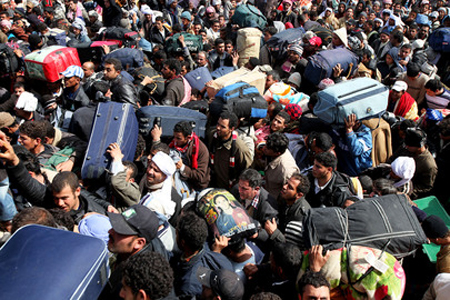EU-Tunisia Agreement: Human Rights Concerns Persist from 2023 to 2025

As migrants on metal boats continue to embark on the perilous journey from Sfax to Italy, the European Union's migration policies with Tunisia have faced persistent scrutiny since their inception. In July 2023, the then Council of Europe Commissioner for Human Rights, Dunja Mijatović, raised initial concerns about the Memorandum of Understanding between the European Union and Tunisia, warning that it had "very general language on human rights" without any clear concrete safeguards for Human Rights.
"Comprehensive human rights safeguards must be an integral part of any migration co-operation activity between Council of Europe member states and third countries," Mijatović had emphasised at the time. She called on EU member states to press for "immediate clarification of the human rights safeguards" and to halt implementation of migration-related aspects until adequate protections were established.
Eighteen months later, a February 2025 FRONTEX report indicates a 22% decrease in overall irregular border crossings to the EU through Mediterranean routes compared to January 2024. Despite this overall decline, activity along the Central Mediterranean route has continued, and the number of shipwrecks is unchanged—indicating that the human cost of informal migration attempts remains unabated.
More troubling is a January 2025 investigation report by The Guardian that reveals evidence of Mijatović's early concerns. According to the report, tens of thousands of sub-Saharan refugees and migrants are living in "horrific" conditions in makeshift camps near El Amra, north of Sfax, where humanitarian organisations, aid agencies, and even UNHCR officials are unable to access. Though UNHCR has registered over 12,000 refugees or asylum seekers in Tunisia, UNHCR officials acknowledge that this represents only a fraction of migrants in the area.
The Guardian's investigation further alleges that EU funding seems to indirectly support Tunisian security forces who are accused of widespread sexual violence and abuse against vulnerable migrants, particularly women. Internal documents suggest Tunisian national guard officers are simultaneously facilitating illegitimate boat trips while engaging in abuses—robbing, beating, and abandoning migrants, including women and children, in the desert without provisions.
Senior EU sources have made no assessments despite reportedly admitting that Brussels is "aware" of these claims. As Europe continues its efforts to manage migration and development through regional Mediterranean partnerships, balancing border security and human rights protection remains a critical challenge that demands greater transparency and accountability.
IOM report to the Italian Ministro of Foreign Affairs provides an interim report of the findings regarding the EU-Tunisia project related developments addressing the impact on vulnerable migrants in Tunisia in the period from 1 September 2023 to 29 February 2024.

